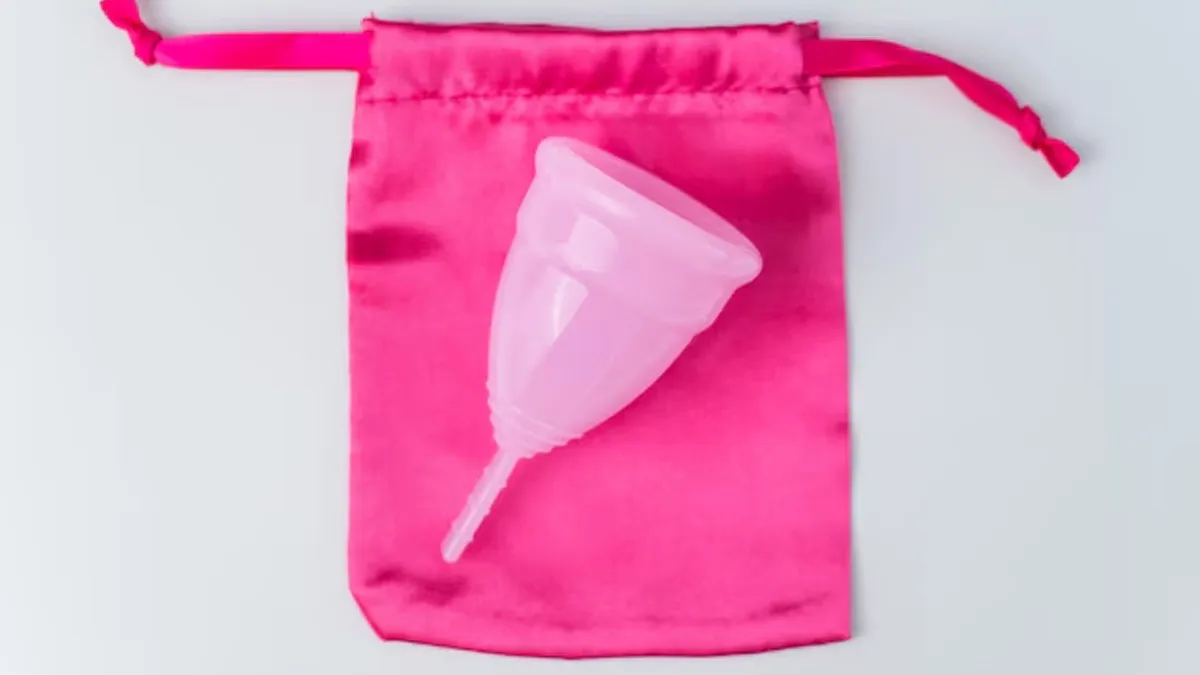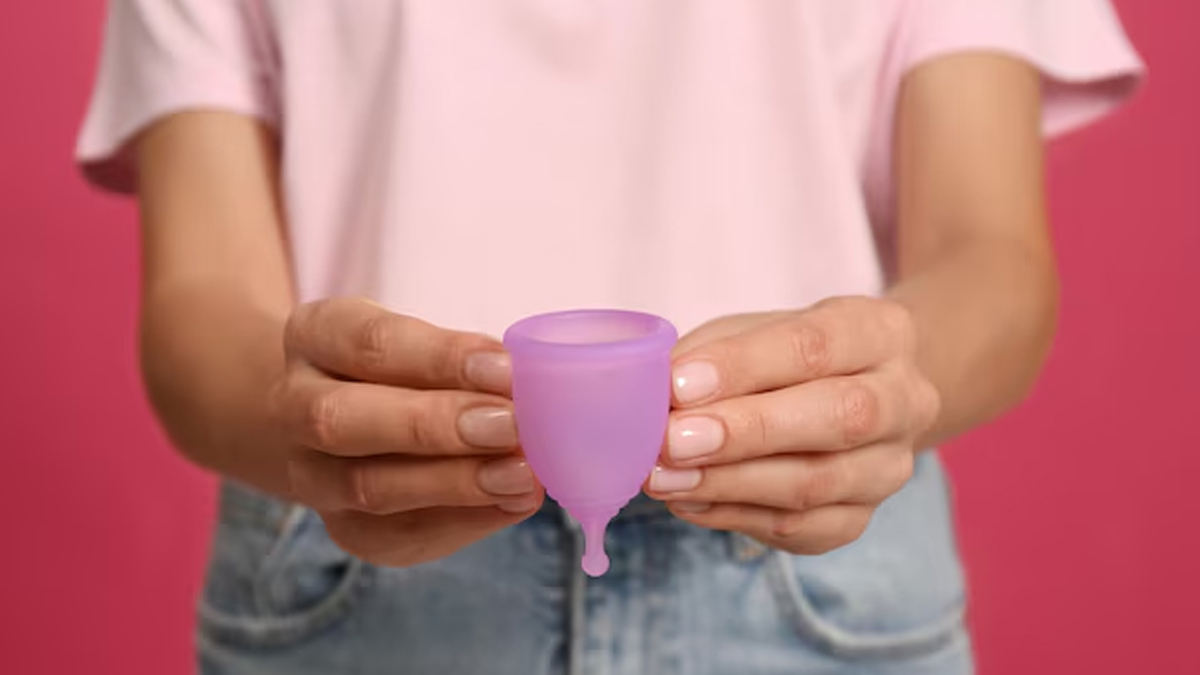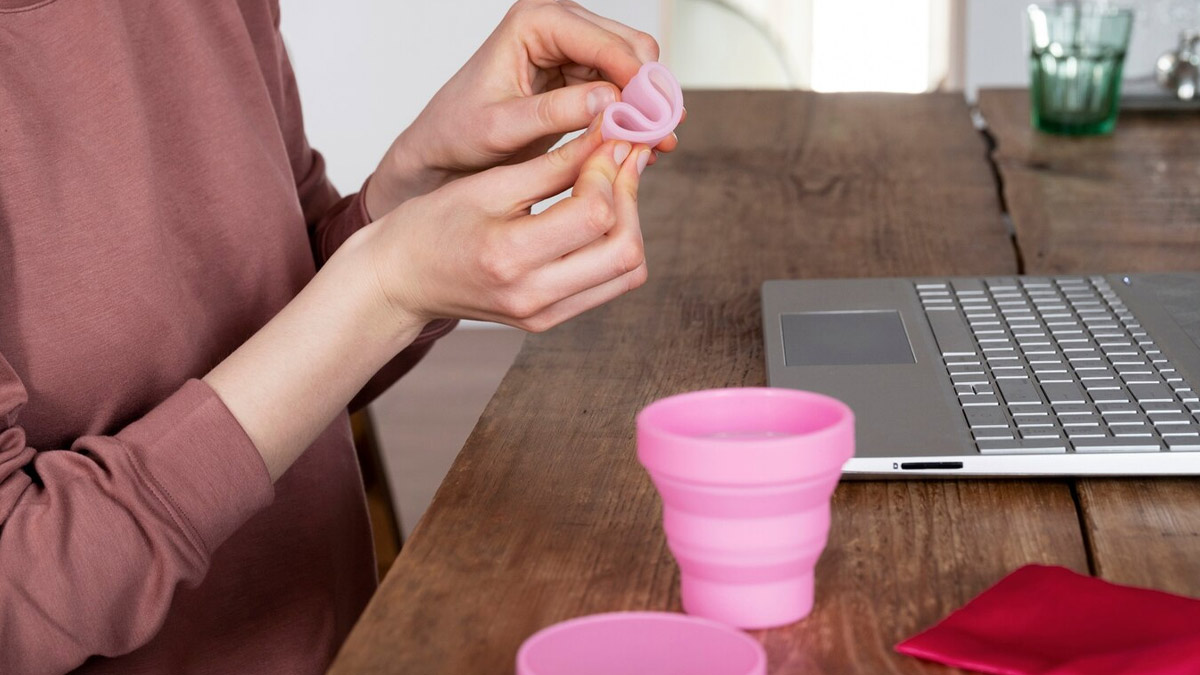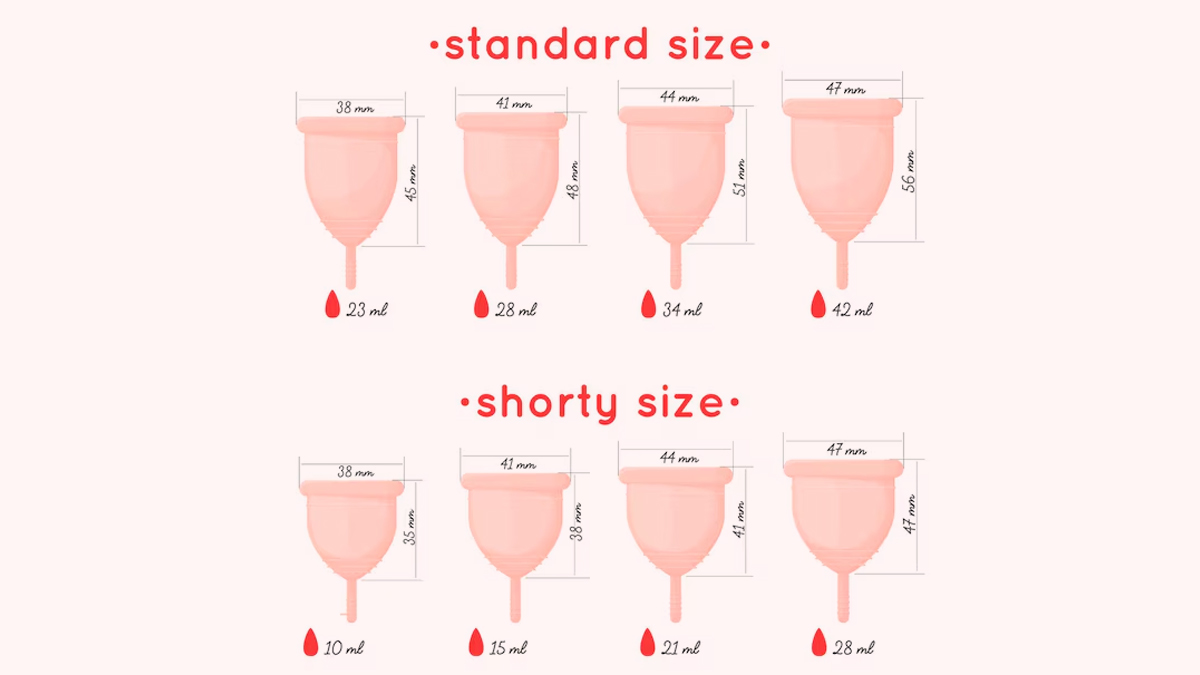
Menstrual cups have become popular as a cost-effective and environmentally friendly substitute for tampons and pads. However, like any menstrual product, questions about their safety and possible health impact are raised. One such question is whether or not menstrual cups can harm the kidneys.
Table of Content:-
To understand this, we spoke to Dr Chetna Jain, Director - Department of Obstetrics and Gynaecology, Cloudnine Group of Hospitals, Sector 14, Gurgaon, who explained how menstrual cups function, their possible effect on the body, and if they are related to kidney health.
Menstrual Cups and Their Usage

"Menstrual cups are flexible, reusable, bell-shaped devices of medical-grade silicone, rubber, or Thermoplastic Elastomer (TPE). They are inserted inside the vagina to collect menstrual blood rather than absorb it, as they do in tampons," said Dr Jain. It is usually put low inside the vaginal canal, beneath the cervix, and secured by suction. As long as it is inserted properly, it won't hurt and will not affect urination or bowel movements.
You may wonder how kidneys, organs located in the upper abdominal region, completely separate from the upper abdominal region, have a link to the harmful effects of menstrual cups. However, there have been a few cases where women have reported urinary issues while using menstrual cups, leading to concerns about their impact on kidney function.
Also Read: Sustainable Period Care: The Benefits Of Using Menstrual Cups For Health And The Environment
Can Menstrual Cups Affect Kidney Function?

1. Menstrual Cups and Urinary Tract Compression
Although menstrual cups do not directly touch the kidneys, they sit close to the bladder and urethra. "If a cup is too large, inserted improperly, or creates excessive suction, it may press against the urethra (the tube that carries urine from the bladder out of the body)," added Dr Jain.
Possible Effects
- Urinary retention (inability to empty the bladder).
- More frequent urination is caused by pressure on the bladder.
- Mild pain or discomfort during urination.
- Since the kidneys filter waste and produce urine, any obstruction in the urinary tract could, in theory, affect kidney function over time if left untreated. However, there is no direct scientific evidence linking menstrual cup use to kidney damage.
2. Urinary Tract Infections (UTIs) and Kidney Health
"Incorrect use of a menstrual cup, like having it in for too long (more than 12 hours) or failing to clean it, can cause an increased risk for bacterial infections like Urinary Tract Infections (UTIs)," said Dr Jain.
If UTI is not treated, it may spread to the kidneys and lead to a serious infection called pyelonephritis (kidney infection), with the following symptoms:
- Back pain or flank pain
- Fever and chills
- Nausea and vomiting
- Cloudy or bloody urine
Prevention Tip: Always sterilise your menstrual cup before and after each period and clean it thoroughly after each removal. If you have symptoms of UTI, consult a doctor to avoid complications.
Does Menstrual Cup Suction Affect the Kidneys?
"Some women are concerned that the intense suction of a menstrual cup could somehow 'pull' on internal organs, impacting the bladder or even the kidneys. However, this is not possible because of the anatomical design of the reproductive and urinary systems," explained Dr Jain.
Excessive suction, though, can cause pelvic floor muscle and bladder discomfort, resulting in:
- A feeling of fullness or pressure.
- Temporary urination difficulty.
- Mild pain when trying to remove the cup.
Solution: When suction is too intense, release the seal by pinching the bottom of the cup before removal to avoid unnecessary pressure against adjacent organs.
Also Read: Menstrual Cup Vs Disc: Expert Lists Pros And Cons For Each Product
Who Should Be Cautious When Using Menstrual Cups?

You may need to reconsider or adjust menstrual cup usage if you:
- Have a UTI or kidney infection history.
- Suffer from chronic urinary retention or are having trouble urinating.
- Experience pelvic organ prolapse (a condition in which the bladder, uterus, or rectum slides down).
- Recently underwent pelvic surgery affecting bladder function.
Alternative Options: If menstrual cups are uncomfortable or causing urinary problems, try switching to a more gentle cup, a smaller size, or a different menstrual product, such as organic tampons or cloth pads.
Expert Tips for Safe Menstrual Cup Usage
Select the Right Size

- If you experience urinary discomfort, try a smaller or softer cup.
- Certain brands have 'low-suction' or 'soft' cups to reduce pressure.
Insert Properly
- Insert it low in the vagina, taking care not to bump the bladder.
- Relax your pelvic muscles when inserting and removing the cup.
Practice Hygiene
- Don't forget to clean your hands both before and after using the cup.
- Sterilise the cup between cycles by boiling it for 5–10 minutes.
- Empty and rinse the cup at least every 8-12 hours.
Monitor Urinary Health
- If you notice difficulty urinating, discomfort, or increased frequency, adjust the cup placement or try a different size.
- If UTI symptoms appear, seek medical attention promptly.
Bottomline
"There is no scientific evidence that menstrual cups directly affect kidney function. However, improper use may lead to urinary discomfort or UTIs, which, if left untreated, could potentially impact kidney health," added Dr Jain. Here are things that you should know:
- It is safe for most users if inserted correctly and cleaned properly.
- It is not directly linked to kidney disease or organ damage.
- Potential bladder discomfort can be managed with the right cup size and placement.
Dr Jain concluded, "If you notice any unexplained symptoms with a menstrual cup, including not being able to urinate, pain, or infection signs, seek advice from a gynaecologist or a urologist. The menstrual cup used correctly is both safe and effective, however getting one that fits you right is crucial."
[Disclaimer: This article contains information provided by an expert and is for informational purposes only. Hence, we advise you to consult your professional if you are dealing with any health issue to avoid complications.]
Also watch this video
How we keep this article up to date:
We work with experts and keep a close eye on the latest in health and wellness. Whenever there is a new research or helpful information, we update our articles with accurate and useful advice.
Current Version
